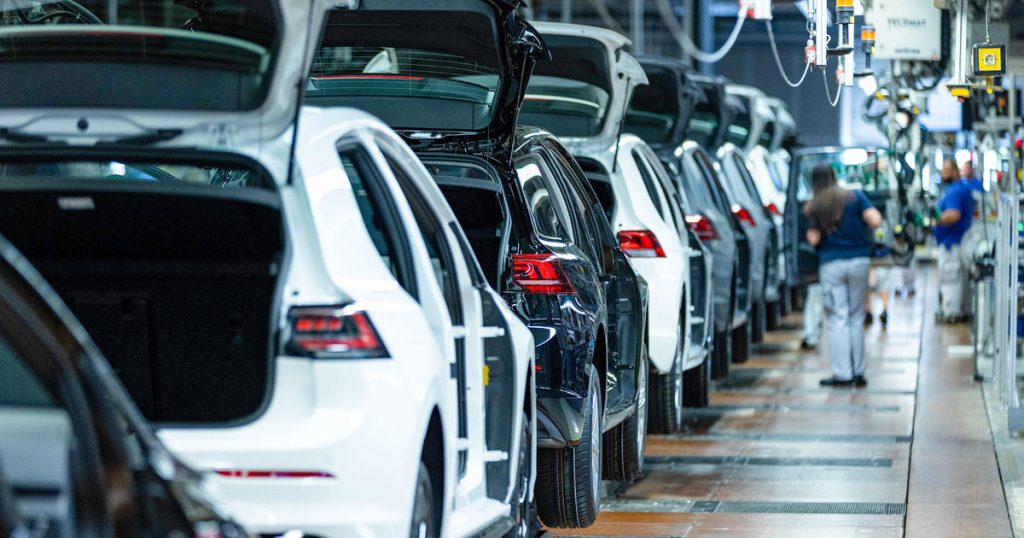The European automotive industry is facing challenges, with Volkswagen considering plant closings in Germany and dropping a job protection pledge that would have prevented layoffs through 2029. Volkswagen’s CEO cited new competitors entering the European markets, Germany’s declining manufacturing position, and the need for decisive action. The company’s efforts to reduce costs have not met their targets, and operating earnings for the Volkswagen brand have decreased. Union officials and worker representatives criticized the potential closings and layoffs, emphasizing the importance of protecting employees, locations, and labor agreements.
Mounting competition from Chinese electric cars is adding to the challenges faced by European automakers. Volkswagen’s half-year results show that they may not achieve their target for cost savings. The group also includes luxury brands Audi and Porsche, which have higher profit margins than the mass-market vehicles produced by Volkswagen. The company has been trying to cut costs through early retirements and buyouts, but these measures may not be enough to avoid closures or layoffs. Volkswagen’s core brand is particularly affected by the current situation.
The European Union has imposed provisional tariffs on Chinese electric vehicles, with levies ranging from 17.4% to 37.6% on cars from different Chinese manufacturers. President Joe Biden has also announced tariffs of up to 100% on Chinese EVs, increasing the current tariff of 25%. This move aims to address the competition posed by inexpensive Chinese electric cars in the global automotive market. The tariffs are part of efforts to protect the interests of European and American automakers in the face of growing competition from China.
Union officials and worker representatives at Volkswagen have voiced strong opposition to the potential plant closings and layoffs. They believe that the management’s approach is short-sighted and could harm the company’s core operations. The governor of Germany’s Lower Saxony region, who sits on Volkswagen’s board of directors, called on the company to find alternative ways to reduce costs without resorting to plant closings. The focus is on protecting employees, locations, and labor agreements while addressing the challenges facing the European automotive industry.
The situation at Volkswagen reflects broader challenges in the European automotive industry, including increased competition from Chinese electric vehicles and the need to adapt to changing market dynamics. The company’s struggles to achieve cost savings and maintain profitability highlight the difficulties faced by traditional automakers in a rapidly evolving industry. The potential plant closings and layoffs at Volkswagen underscore the importance of finding innovative solutions to address these challenges while protecting the interests of workers and stakeholders. Despite these headwinds, the company and the industry as a whole are seeking to navigate a path forward in a competitive and evolving market landscape.
In conclusion, the European automotive industry, including Volkswagen, is facing significant challenges that have led to discussions of plant closings and layoffs. Mounting competition from Chinese electric vehicles, combined with the need to reduce costs and maintain profitability, has prompted companies like Volkswagen to consider drastic measures. Union officials and worker representatives are advocating for alternative ways to address these challenges without resorting to plant closings. The imposition of tariffs on Chinese EVs by the European Union and the United States is part of a broader effort to protect domestic automakers from foreign competition. As the industry grapples with these challenges, finding a balance between cost-cutting measures and protecting employees and operations will be crucial for the future success of European automakers like Volkswagen.














